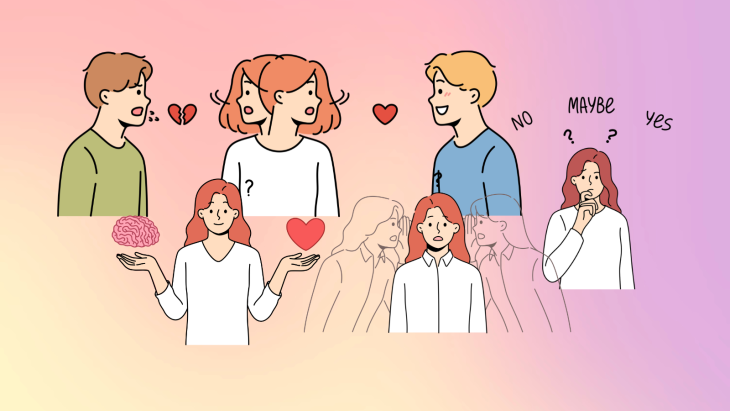Recent Posts
- The Anxious Generation. What is causing Gen Z's mental health crisis?
- Do you have to play games to make relationships work?
- Can a Therapist Find love? The Dating Life of a Therapist.
- Can a Therapist Benefit from Therapy?
- My kid's schedule is fully packed with after-school activities everyday. How much is too much?
Most Popular
From one relationship to another, I have been cheated on! Can I still afford to trust another man?

When there is trust in a relationship, there is a feeling of safety emotionally, mentally and physically. When we trust in the person we love, we can move with confidence, put our relationship in high esteem and love better.
Think of trust as the lens where we see our romance and our loved one. Naturally, trust is both hard to earn and to mend once it is broken.
Broken trust leads to distortion of how we see ourselves, our relationships and our loved ones. It increases our tendency to look at them with doubt, our senses are heightened for signs of betrayal. In turn, we become so stressed that our body, mind and emotions are harmed.
Responses to broken trust
Betrayal of trust may affect people differently, but here are some common responses:
- Pulling away from the person who betrayed them
- Trauma from the betrayal leading to lower self-esteem, damaged emotional health, decrease in satisfaction in relationships
- Pain that lingers and is triggered by memories of the betrayal
- Feeling resigned to the possibility that they may be betrayed again, leading to a difficult time forming trusting relationships with others
- Trying to bury the trauma from the betrayal
Research has shown that the more intimate with us the person who betrays us, the greater the effect is on our ability to trust.
Can trust still be restored?
- It is possible to rebuild trust, but it is a journey. If you ever decide to work the betrayal issue out with your partner and still decide to move forward with your relationship, the journey towards a rebuilt trust will take months or years to finish.
In the same way, when healing separately from the person who betrayed you will also take time and interventions.
- Face the issue instead of hiding from it. Acknowledging and coming to terms with the issue come first. The betrayal already happened, and the past cannot be undone. Memories of it will come up time and time again, and facing it rather than suppressing it, will help make the memories become more bearable.
Open yourself up to conversations with your partner to make you understand the factors that led to it, and find common ground. Can you agree on boundaries and expectations moving forward? Do you have goals about the future of your relationship?
- Take your time. Decide on what is best for you. Do not feel pressured to make big decisions when you are still distressed. Betrayal can be a shock to your nervous system, and you may experience sleeplessness and lack of appetite.
Take care of yourself first. Practice a healthy nighttime routine so you can sleep better, and avoid skipping meals. Choose healthy meals and continue with your favorite physical activity. These habits will build up your resistance to stress and make you develop more resilience.
The presence and support of your family or friends in this difficult time may be the support that will hold your hand and urge you to keep on going. They would give you the care and perspective you need.
If you decide to end the relationship, do not be in a rush to enter into another relationship while you are still healing. The world will offer more opportunities for relationships when you are ready. Your healed self will be the launchpad for a better relationship in the future.
When betrayal has led to trauma, it is indeed difficult to figure things out alone. You can also turn to professional support. Therapy might be able to help jumpstart and aid your healing process. With the support of knowledgeable and caring mental health professionals, you can learn strategies for stronger relationships.
As you learn to rebuild your self-confidence, know that it is possible to heal, and to trust again.
Get insights from the US' premier job board for health care and mental health professionals and connect with top talents across the nation!








Comments